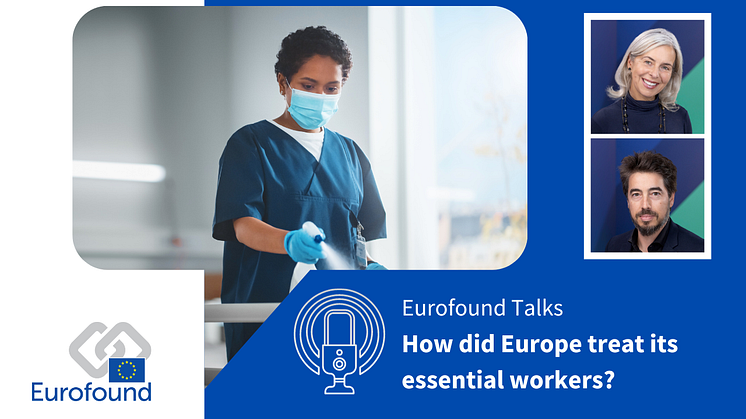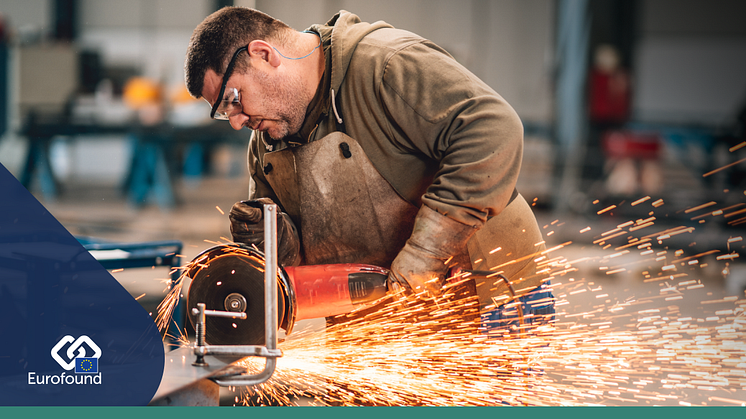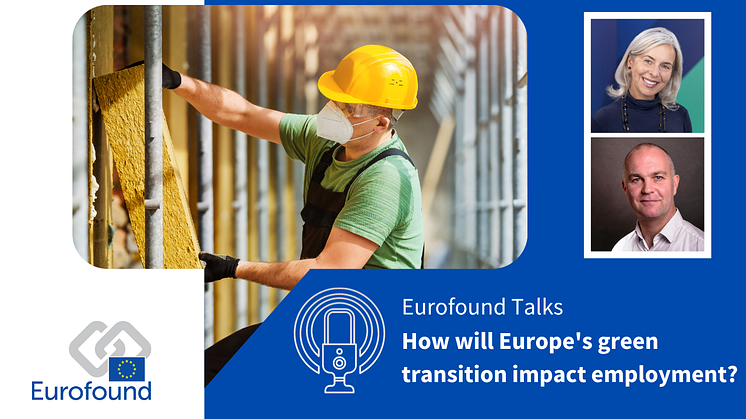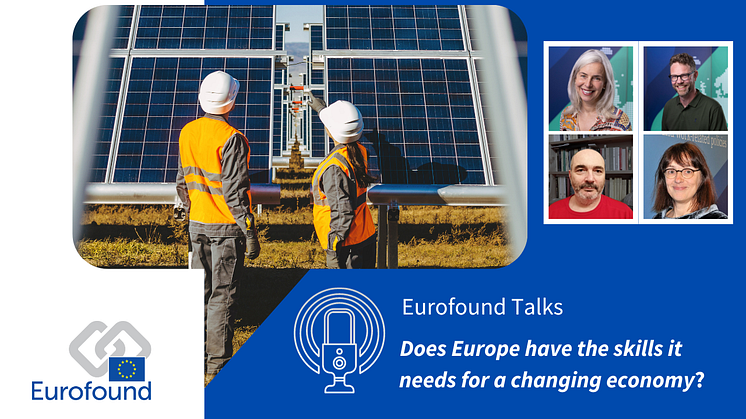
News -
How did Europe treat its essential workers?
During the COVID-19 pandemic, some workers were tasked with supporting the functioning of our societies. They ensured people had access to essential services such as healthcare, long-term care, food supply, water and energy supply, the internet and waste treatment. These workers were referred to as essential, key or critical workers. The occupations they hold are wide-ranging, and their backgrounds are diverse.
Across Europe, citizens clapped for their work, put up signs, sent them cards, sent food and gift baskets, and expressed their appreciation in any way that they could. But what are the working conditions like of these workers? How has the COVID-19 pandemic impacted them and what is working life like for essential workers now compared to before?
The working conditions of Europe’s essential workers is the focus of the new episode of the Eurofound Talks podcast. In the episode Mary McCaughey speaks with Eurofound Research Manager Jorge Cabrita about new research that highlights poor job quality - including high emotional demands, working at high speed and to tight deadlines - among several of the sectors and professions deemed essential, key or critical during the COVID-19 pandemic.
They look in detail at the issues in various sectors, and the importance of improving job quality in order to both improve the working lives of essential workers, as well as build Europe’s resilience for the crises ahead.
- Listen to the episode: How did Europe treat its essential workers?
- Download the policy brief: Job quality of COVID-19 pandemic essential workers
Subscribe to Eurofound Talks where you get your podcasts, you can send feedback on the series to media@eurofound.europa.eu.








